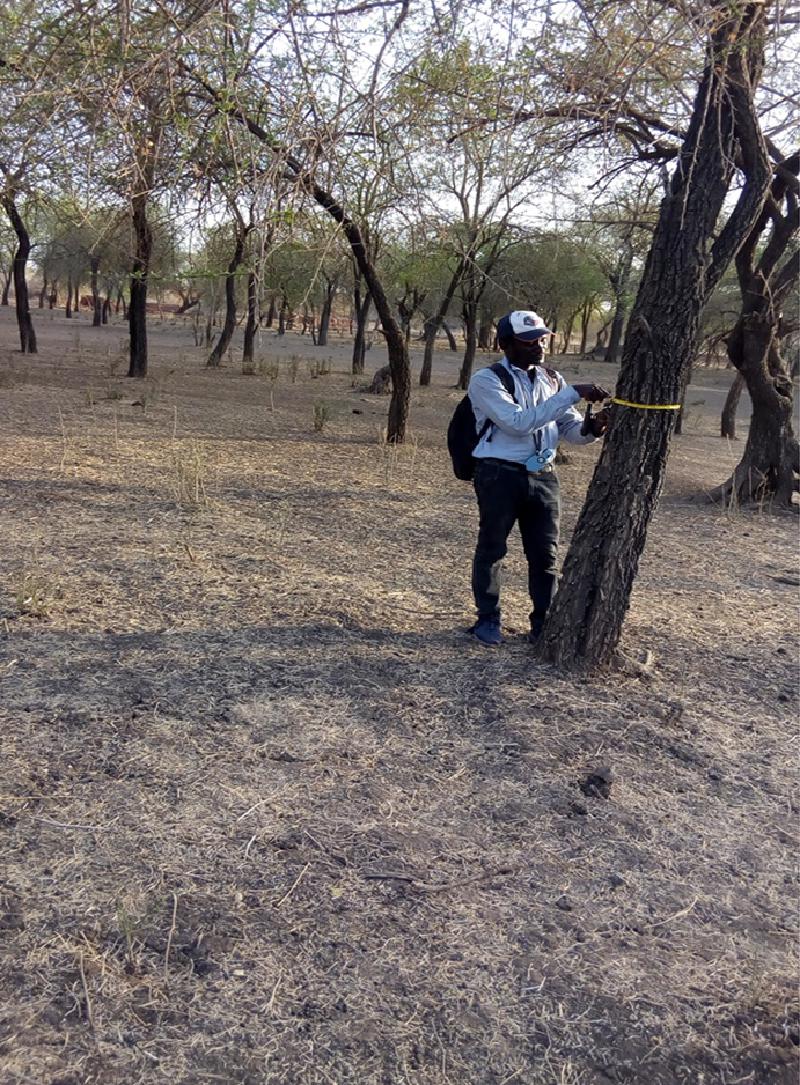Elmugheira Mockarram Ibrahim Mohammed
The main aim of this research is to conserve Balanites aegyptiaca in Sudan with special concern to Dinder Biosphere reserve. Specifically, this project aims to:
1) Assess the current status of Balanites aegyptiaca in Dinder Biosphere Reserve – Sudan.
2) Determine which stage of species development (seedling or sapling) are more sensitive to animal grazing (livestock grazing).
3) Determine the areas where the species is dominant and stable as well, where it is declining and need quick action.
4) Raise the awareness of local community about the importance of the species and train them on seedlings raising and conservation for further contribution in protection activities.
5) Develop a comprehensive landscape conservation plan that will cover all habitats components in the reserve.
6) Contribute in capacity building approach for forest managers and rangelands administration officers in and around Dinder Biosphere Reserve – Sudan.

Shows the measurement of small and large tree diameter, height, and basal area.
The current project is exploring the responses of Balanites aegyptiaca seedlings and saplings to livestock grazing in Dinder Biosphere Reserve for proper conservation of the species in Sudan. Balanites aegyptiaca is multi-purposes tree species with various food, medicine, fodder and environmental uses throughout the world. All parts of the tree are used in the folk medicine of several nations of the world, mainly in Africa and Asia. Balanites aegyptiaca bears fruits with an edible mesocarp which are often collected in large amounts from the wild as source of additional income. The species is well known in Sudan with several uses, however, now is declining due to overgrazing and illegal harvesting.
This project is aiming to assess the current status of species in Dinder Biosphere reserve and determine which stage of development (seedling/sapling) is more sensitive to livestock grazing. Besides that, it is intending to determine the hotspot areas and raise the awareness of local community about the importance of the species. Moreover, capacity building of reserve guards is the part of this project inorder to facilitate the implementation of comprehensive plan that will be established and proposed by this study.
Participation of local community in management and protection activities is a key factor for proper conservation of vulnerable species like Balanites aegyptiaca. However, to achieve such good and efficient participation it is necessary to train the participants so they can fulfill that task easily and in smooth manner. Therefore, in this project we consider the training of local community and the reserve guards as a core activity for sustainable management and conservation of the species in Dinder Biosphere Reserve.
Protected areas and forest reserves in Sudan are now under pressure due to high illegal harvesting and livestock grazing after separation of South Sudan. The current study will contribute effectively in solving such challenge in Dinder, but also, it can be a model applied in other reserves with such conditions and problems.